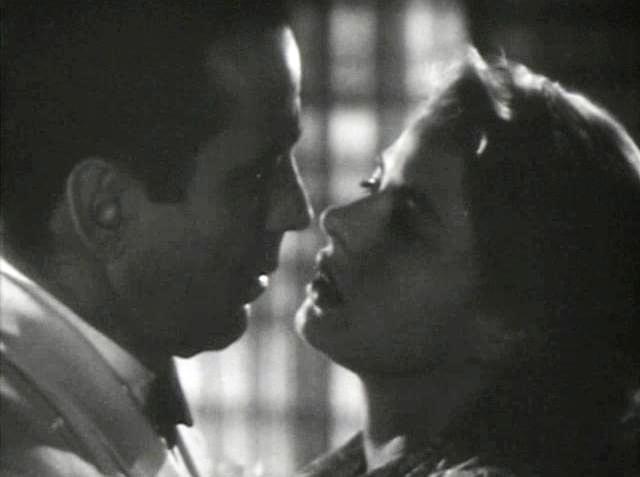In the final scene of the movie Casablanca, Humphrey Bogart says to Ingrid Bergman “We’ll always have Paris” as a memory that can never be taken away even as he insists that they part. The phrase has become iconic. And today, the day after the United States pulled out of the Paris Agreement on Climate Change, the phrase is ironic as well as iconic. We, the world community, will always have Paris, the stated ideal, even if one of the key parties to it has turned its back.
U.S. involvement and commitment is key to humanity’s attempt to overcome the situation it has created for itself. The U.S. “brexit” from the Paris accord is an unmitigated and unnecessary disaster. One can only hope that the other countries of the world, buoyed by resistance by U.S. states and municipalities, hang in there.
There are signs of hope. Apparently anticipating this dark moment, billionaire Michael Bloomberg seeks to to organize the coalition of companies, states, and municpalities into what is being called the United States Climate Alliance. Perhaps this alliance can show the rest of the world that large parts of the American population (the majority in fact) support the Paris accord, and powerful government actors and private sector entities will stay committed despite the Administration’s spiteful and irrational decision. See http://read.bi/2s1ZCqX (Business Insider article describing the Alliance). “Americans will honor and fulfill the Paris Agreement by leading from the bottom up — and there isn’t anything Washington can do to stop us,” Bloomberg said in a press release. Hope!
While the President may have relinquished the opportunity for the United States government to lead the effort to push the Paris Agreement forward, ceding that role now to Germany, France, and China, perhaps there is hope that the United States Climate Alliance can act as a kind of shadow government — a voice like that of the French Resistance during WWII — that will show the world that there will someday be a different American government that will return us to responsible involvement in global affairs. Leading from the bottom up, we the people can keep Paris alive.
As for the President himself, his motivations appear far more spiteful than coherent. Despite advice from many of his own advisors and family, and the pleas of hundreds of American corporations, he chose to unwind a carefully crafted diplomatic structure aimed at addressing one of the world’s most pressing problems. It is, again, as if he must undo anything that has his predecessor’s fingerprints on it, even if it means killing jobs in the new economy.
In a letter to the New York Times, responding to David Brooks’ article “Trump Poisons America,” I said the following [excerpted], which goes to the President’s motivation:
“In response to David Brooks’ excellent article, I’d like to point out that his descriptions of human character are a bit one-sided. There is a duality to human nature that explains much of human evolution …. Yes, we are capable of great compassion, vision, and collaboration, but we are also hard-wired for aggression, tribalism, and even cruelty when acting on behalf of our tribe.
It was this duality in human nature that caused a far wiser President in 1861 to ask his countrymen and women to summon “the better angels of our nature” to avoid civil war. There is always, as Lincoln recognized, a choice in human affairs — whether to act according to higher principles or baser instincts. So much rides on these choices, including whether our experiment in self-government can “long endure.”
Brooks is correct that there are aspects of the human character that are noble. The Paris Agreement, while perfect for no country, was the product of decades of collaborative work among all the countries of the world, in recognition of our shared human problem and our shared human responsibility for causing it. It that sense, the Paris Agreement is properly understood as an extraordinary human achievement in the context of great complexity. We as a species can overcome great challenges, despite tribal (nationalist) urges.
What is unspeakably sad in what happened yesterday is that the President summoned not “the better angels of our nature” but rather the darker, meaner, more tribal angels of our nature. He summoned (again) the human instinct to fear the Other, to be wary of other peoples and nations, to be wary even of each other.
The dark, angry, nationalist vision of Trumpism must be isolated, exposed, and ultimately rejected if we are to find a way to live in peace in the world.”
So yes, we’ll always have Paris. With persistance, we can keep it alive as more than a memory.

Thanks for this Bob! I have been reading Rebecca Solnit a bunch lately and in her book Hope in the Dark she draws on history of change and movements in ways that remind me of you and how you connect the events of the day to historical contexts. In the chapter she titled When We Lost – which was a response to the election of George W. – she speaks to examples in history that gave her hope in the face of a Bush presidency… too much to recount here – but the closing sentences of the chapter are worth sharing. “Inside the word emergency is emerge, from an emergency new things come forth. The old certainties are crumbling fast, but danger and possibility are sisters.” So here’s to the emerging resistance to this latest move by the Trump administration and all of the creativity and determination it awakes in each of us!
LikeLike
Great to hear from you! Thanks for commenting!
LikeLike
Maybe Bloomberg and the Alliance will be a rallying place for galvanizing corporate and grass roots populations to this and other idiotic dictates coming from the White House.
LikeLike